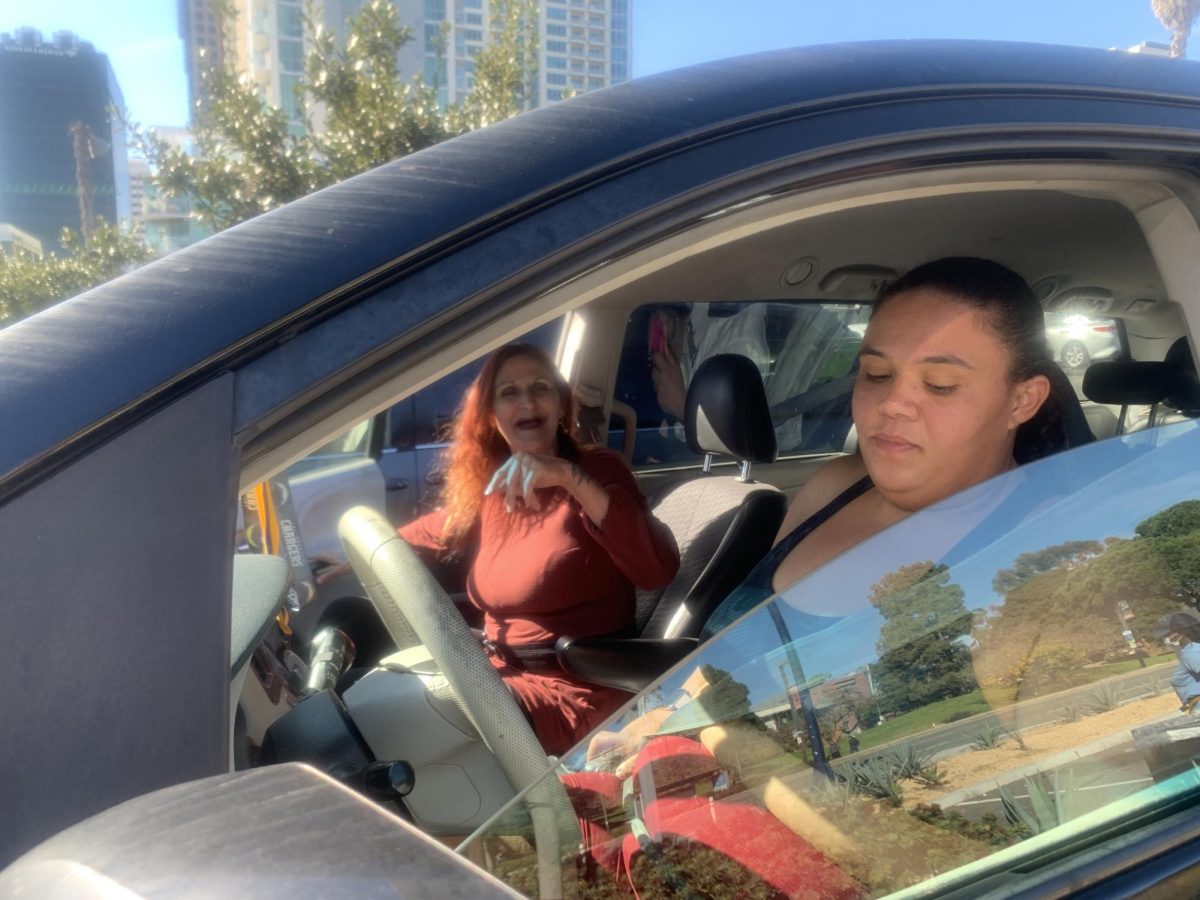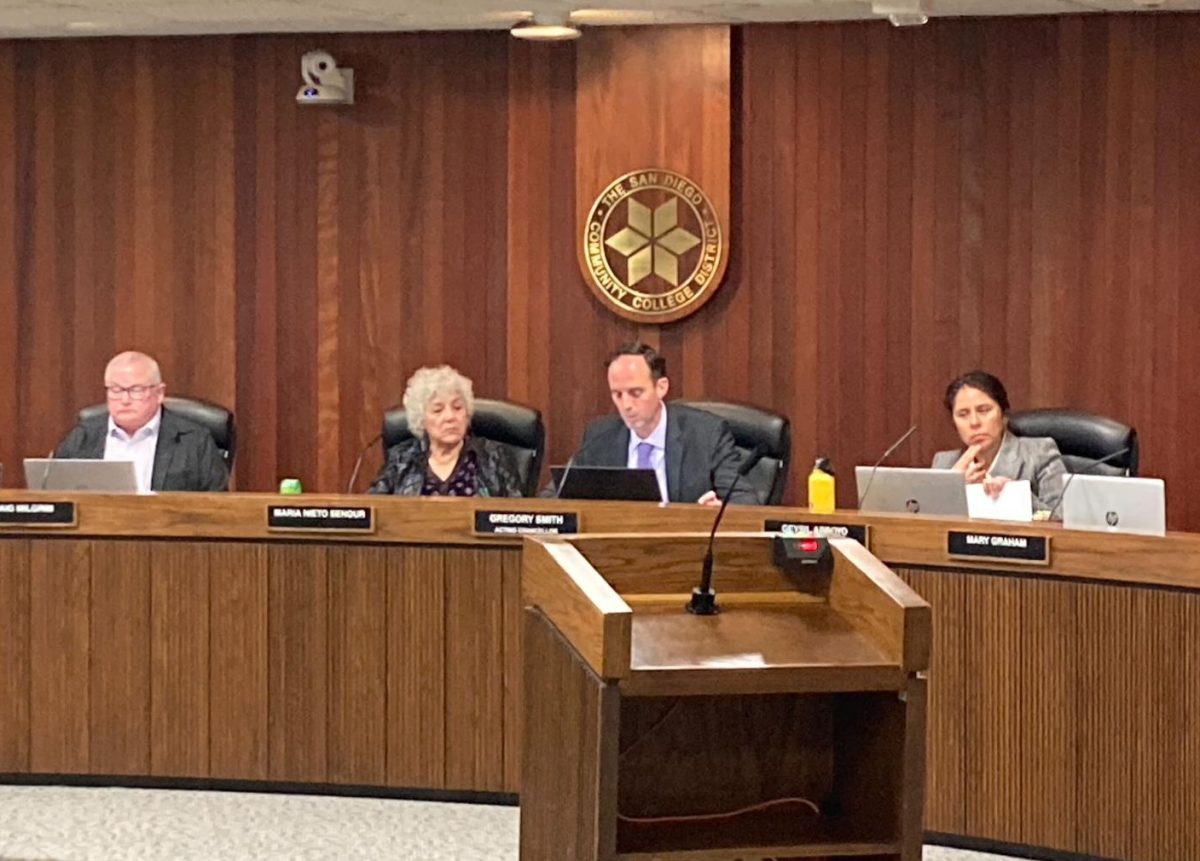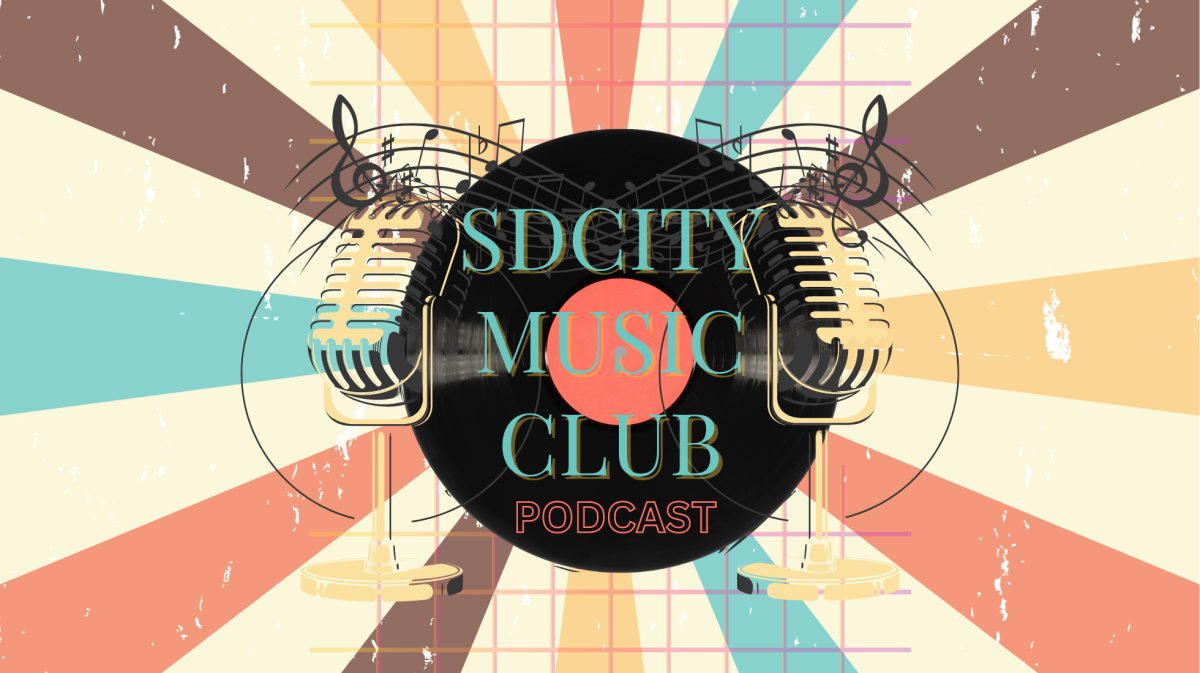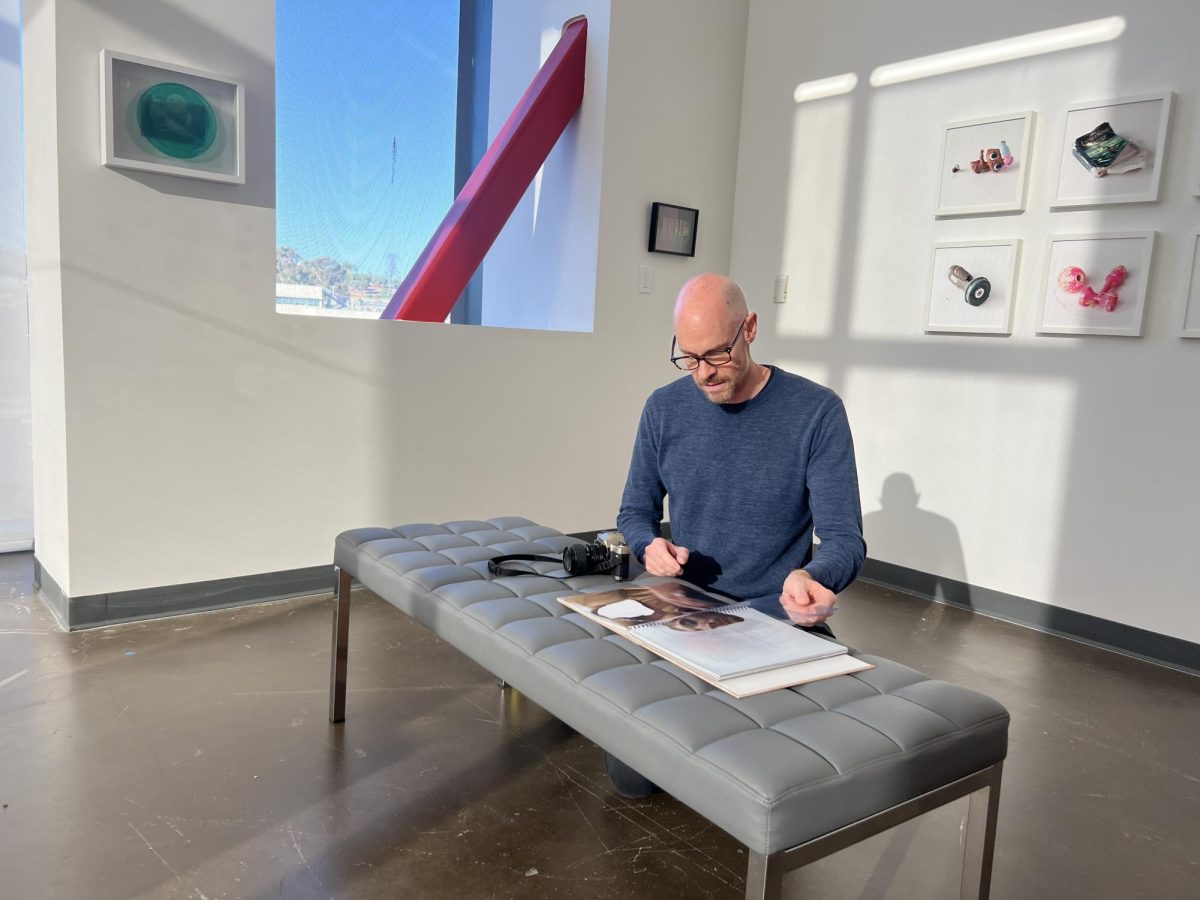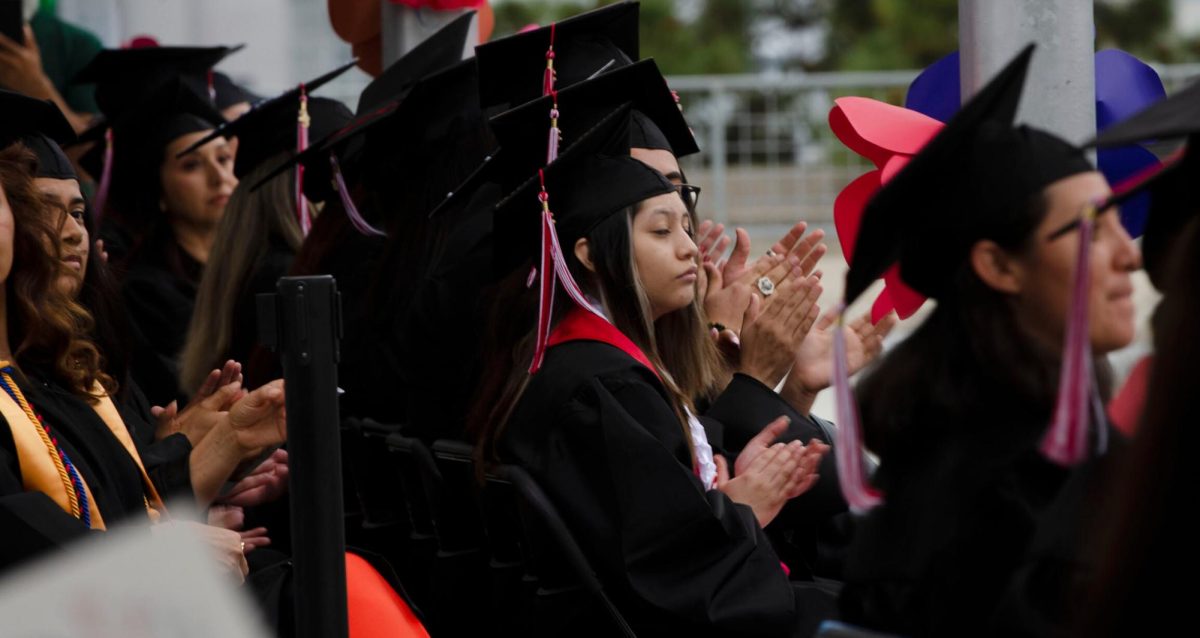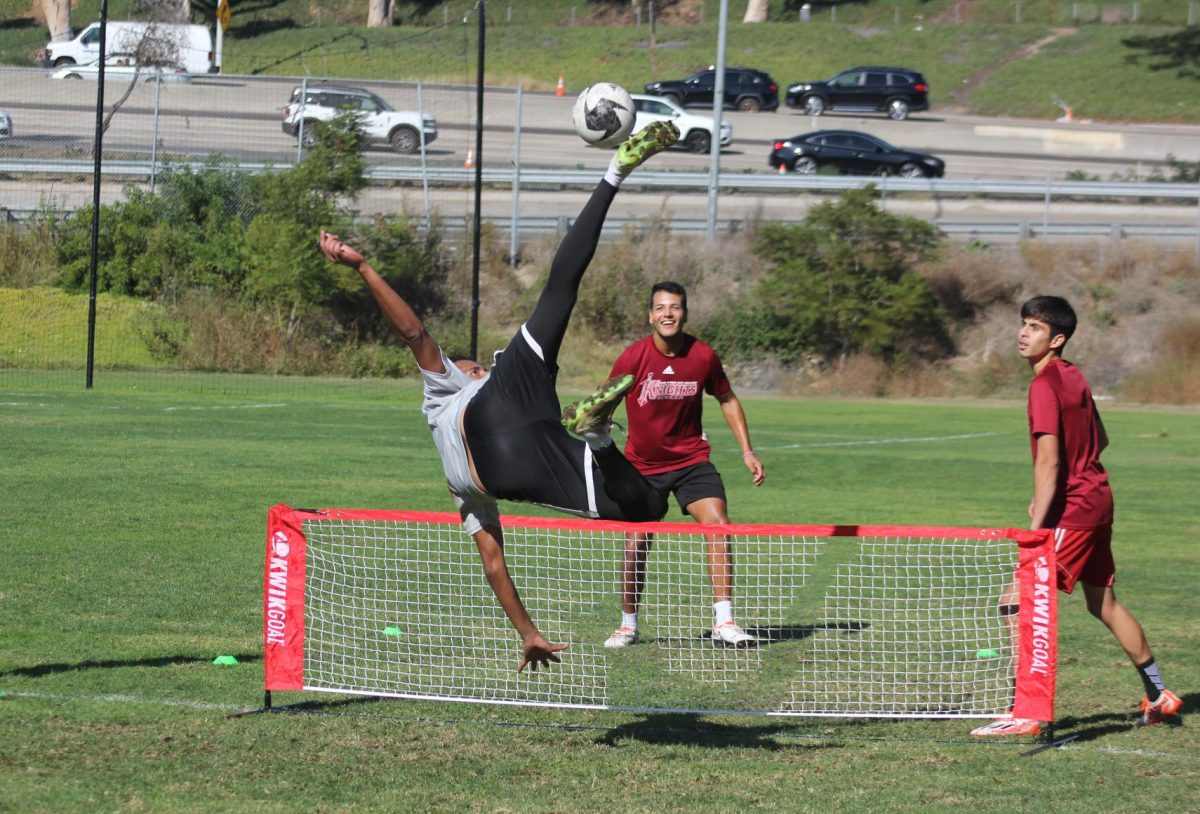Sonjiala Hotchkiss
City Times
“The old joke is, I play records,” Ted Herring answered with a laugh when asked whether he played an instrument. Herring is a jazz DJ at KSDS Jazz 88, the City College all-jazz radio station. Herring has been on the air at City since September 1978.
Herring said he learned Jazz working at KSDS. Well before which, he always loved the radio. He spoke of being a boy walking with his little transistor radio held close to his ear during the day and close under his pillow at night. Many years passed between the boy and the man now playing records at KSDS.
“I can be good enough,” Herring said to himself once he made the decision to give radio a try. He met Damajale while looking to break into radio at a company that used to reside at 4th and Broadway. Damajale, who has become a pillar of the San Diego music scene, told him that the place to learn radio was City College.
Now it has become part of Herring’s almost 30-year routine to head off to “Jazzland,” the name by which he and his fellow disc jockeys refer to coming to work.
Herring, known as, “T,” hosts sets on Saturday and Sunday evenings. Herring got his nickname from a little boy who couldn’t pronounce, “Ted.” Herring thought it sounded like a cool name for a jazz guy, adding that this was long before the show with Mr. T.
Herring got his Saturday night gig upon the departure of one of the station’s founders, Doug Coffland. When Coffland left, so did his personal library of blues records.
Herring, left to make do with the station’s less-than-stellar blues collection, decided to add in music from other blues-related genres such as jazz, gospel, and New Orleans zydeco, thus the set’s title, “Every Shade of Blue,” which airs from 7 p.m. to midnight.
Herring got off to a rough start at KSDS as a newsreader. It didn’t take long for him to realize that news reporting had shades of blue he didn’t want to cover.
“The PSA crash happened my first day on air,” Herring said. He was the only one who showed up to work that day, so the whole day’s news coverage fell to him. He quickly asked the instructor, Hope Shaw, if there were anything else he could do. At that time, there was a hard-to-fill 9am to noon slot waiting.
Like most of the DJs at KSDS, Herring has a second job. He performs weddings. Herring calls them truth-and-life weddings. He said that he enjoyed getting to know the couple and telling their love story during the ceremony. Herring’s own love story began at Olive Grove Park when the sister of a friend’s wife ran up to introduce herself.
“My middle name is Olive. I can prove it to you,” said future-wife Connie before running off to gather her driver’s license from her purse. Herring’s friends explained the license wouldn’t be much help to Herring because he was blind. This moment of embarrassment was the start of Herring’s love affair and the end to his 49 years of bachelorhood.
Herring talked openly about Retinitis Pigmentosa (RP), the degenerative eye disease that eventually resulted in his complete blindness. As his loss of vision progressed, Herring adjusted his studio routine.
Herring explained that he picked out the music for the next weekend before leaving the station and put his sets together during the week at home. Though he was reluctant to make the switch from vinyl to CDs, he is now grateful for the new technology.
“I can’t find a groove with a needle,” Herring explained, but he could click through to the right selection on a CD. He said that figuring out the sets beforehand actually allowed him to enjoy the music more during the show instead of always fumbling around for the next selection.
Herring said that he was especially fond of jazz guitar. He hosts a jazz guitar hour on Sunday evenings from 6 p.m. to 7 p.m. Herring also hosts “Is It Late Sunday or The Monday Blues?” from 12 a.m. to 1 a.m. on Monday mornings.
Ike Turner provided him with his most memorable interview. Herring said that one question was enough to launch Turner into 45 minutes of non-stop storytelling, including the story of his bass flying off the top of the car on the way to a gig. On that night Turner learned to play electric bass because that was the only bass at the local pawnshop.
“Going to Jazzland has never stopped being fun,” said Herring.
“When it stops being fun, I’ll know it’s time to quit.”

